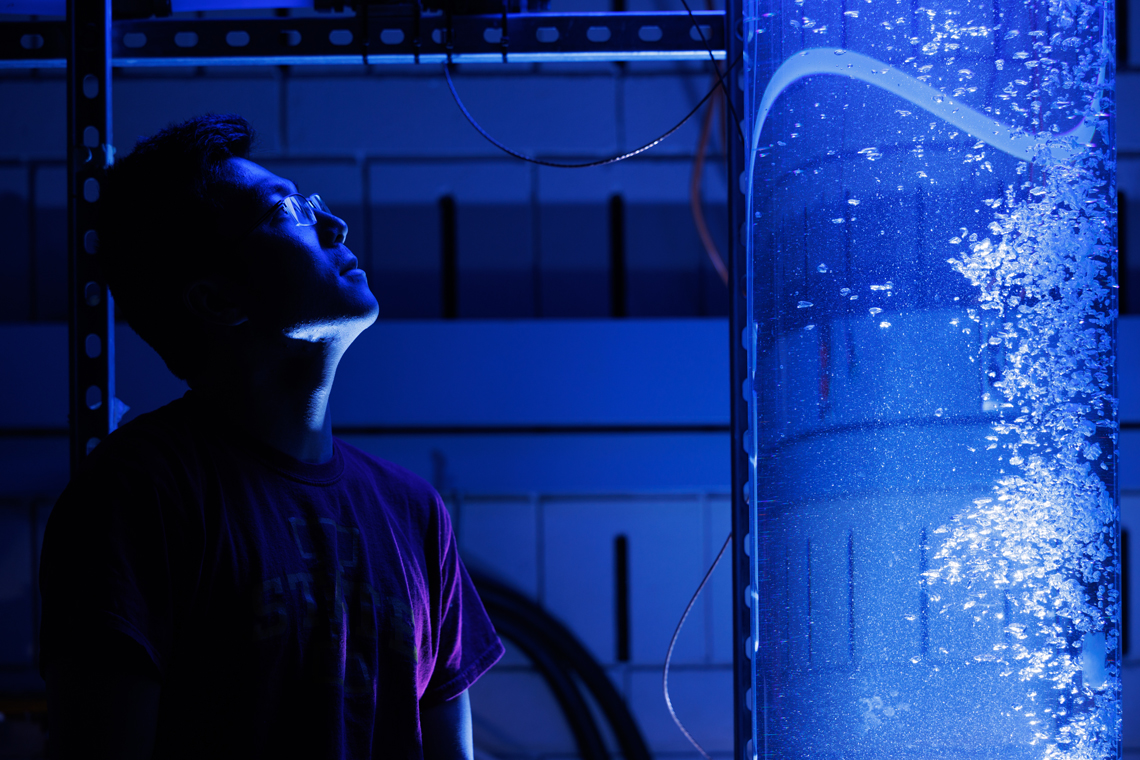Flow state: Jake Knuerr builds new MRI to visualize fluid mechanics
Author: Andre Namink
Author: Andre Namink

Jacob Knuerr is building his one-of-a-kind multiphase flow research skills and connecting with multiphase scholars from across the world as an undergraduate research assistant working with faculty mentor Ted Heindel, CoMFRE director, University Professor, and the Bergles Professor of Thermal Science in the Department of Mechanical Engineering.
“Even though I’m an undergrad, Dr. Heindel gives me liberty, treats me like a grad student and doesn’t restrict my learning,” Knuerr said, a junior majoring in mechanical engineering. “He’s helped me hone my technical skills using various equipment in his lab.”
Alongside Heindel, Knuerr’s lab peers have helped expand his knowledge in electronics, programming, X-ray technology and high-speed imaging.
And working in Heindel’s lab has provided major opportunities: attending research seminars, competing in poster competitions, accessing internships, and presenting his research at the 75th Annual Meeting of the American Physical Society – Division of Fluid Dynamics.
“With Dr. Heindel, I’m working on a Magnetic Resonance Imaging (MRI) machine that costs much, much less than the ones used in hospitals,” Knuerr said. “We ended up creating one that cost less than 1% of what one from the hospital would cost, and my specific job was to calibrate the inside of the MRI bore hole to measure the local magnetic field.”
After getting first place in the poster competition at CoMFRE’s Annual Meeting, Knuerr’s research on “Using Magnetic Resonance Imaging to Visualize Multiphase Flows” was judged at the national APS Division of Fluid Dynamics annual conference.
“There were roughly 3000 people from all over the world and about 60 undergrads I competed against,” Knuerr said. “As an undergrad, the conference was eye-opening to a whole new level of knowledge I haven’t reached yet, and I also got the chance to network with other professors and individuals from other universities.”
To Knuerr, undergraduate research was the best thing he has done to prepare for his future Cyclone Engineering career.
“You get so much out of working in a research lab. You find yourself surrounded by people that have much more knowledge. You’re given difficult tasks. You’re ‘forced’ to learn on your own, work with others, and learn new skills that you might not get at internships,” Knuerr said.
Knuerr’s undergraduate research experience was funded by a grant from the Office of Naval Research, ONR grant number N00014-18-1-2319. The views contained herein are those of the authors only and should not be interpreted as representing those of ONR, the U.S. Navy or the U.S. Government.